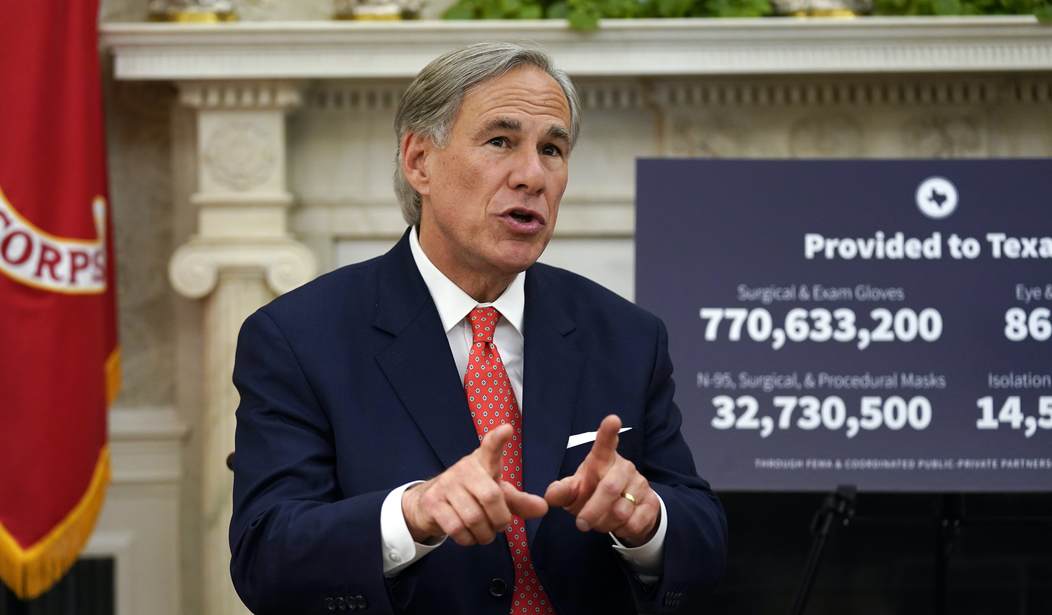On late Sunday night, Democrats in the Texas House walked out to prevent a GOP quorum to pass a voting rights bill. The midnight deadline to pass the measure expired and Democrats celebrated what they thought was a “victory.”
Instead, Governor Greg Abbott decided to play hardball. He will veto the section of the state budget that funds the legislature. The current budget will run until August 31 and Abbott’s veto will affect the next fiscal year.
Of course, that means that Democrats will have to be in the chamber to vote to fund the legislature in order to get paid after August 31. At the same time, Republicans will be able to pass the voting rights bill.
The strategy is not sitting well with Democrats.
“This would eliminate the branch of government that represents the people and basically create a monarchy,” state Rep. Donna Howard of Austin tweeted.
That seems a little unhinged to me.
Texas Democrats used every parliamentary tool at their disposal Sunday night to stop the bill, ultimately walking out to prevent a vote before the midnight deadline. Abbott said the bill would be added to a special session agenda to pass it. He did not announce a date for the special session.
State Rep. Chris Turner, chair of the House Democratic Caucus, said he and his colleagues in the state House will continue their fight, and he called on Congress to pass legislation on the national level that would protect voting.
Abbott cutting off funds for members won’t impoverish too many people. State lawmakers in Texas receive $600 a month plus $221 for every day the legislature is in session. That’s nice walking-around money but it would be hard to live on.
Would the Texas voting law really “disenfranchise” voters? Of course not. Tightening restrictions on voting doesn’t disenfranchise anyone. About the only dubious addition is the rule that there would be no voting on Sunday before 1:00 p.m. This is clearly an effort to suppress the black vote, since black preachers have used historically black churches to bring “souls to the polls” in recent years. Black preachers would mobilize churchgoers and march to the nearest early voting location. It’s a very effective way to get out the black vote and Republican attempts to short-circuit that effort are rightly condemned as targeting black people.
But as Jim Geraghty points out at National Review, this practice shouldn’t prevent anyone from voting — even on a Sunday.
Perhaps the biggest objection is declaring that voting on Sunday may only begin after 1 p.m., which critics contend is an attempt to limit “souls to the polls” efforts by African-American churches. But the bill declares that polls may remain open until 9 p.m., and eight hours of early voting on a Sunday does not seem like a particularly draconian restriction. In fact, the legislation declares that polls must be open for at least six hours.
The Democratic effort to stop these mild restrictions on voting — which aim prevent fraud — is more about racial politics than it is about protecting anyone’s right to vote. The hysterically exaggerated charges of a “return to the Jim Crow era” are about energizing the black community, not about making sure that all Americans can vote.
Recommended: Burgess Owens Eviscerates Democrats’ ‘Jim Crow’ Narrative on Election Integrity
It’s the height of hypocrisy to pretend otherwise.










Join the conversation as a VIP Member